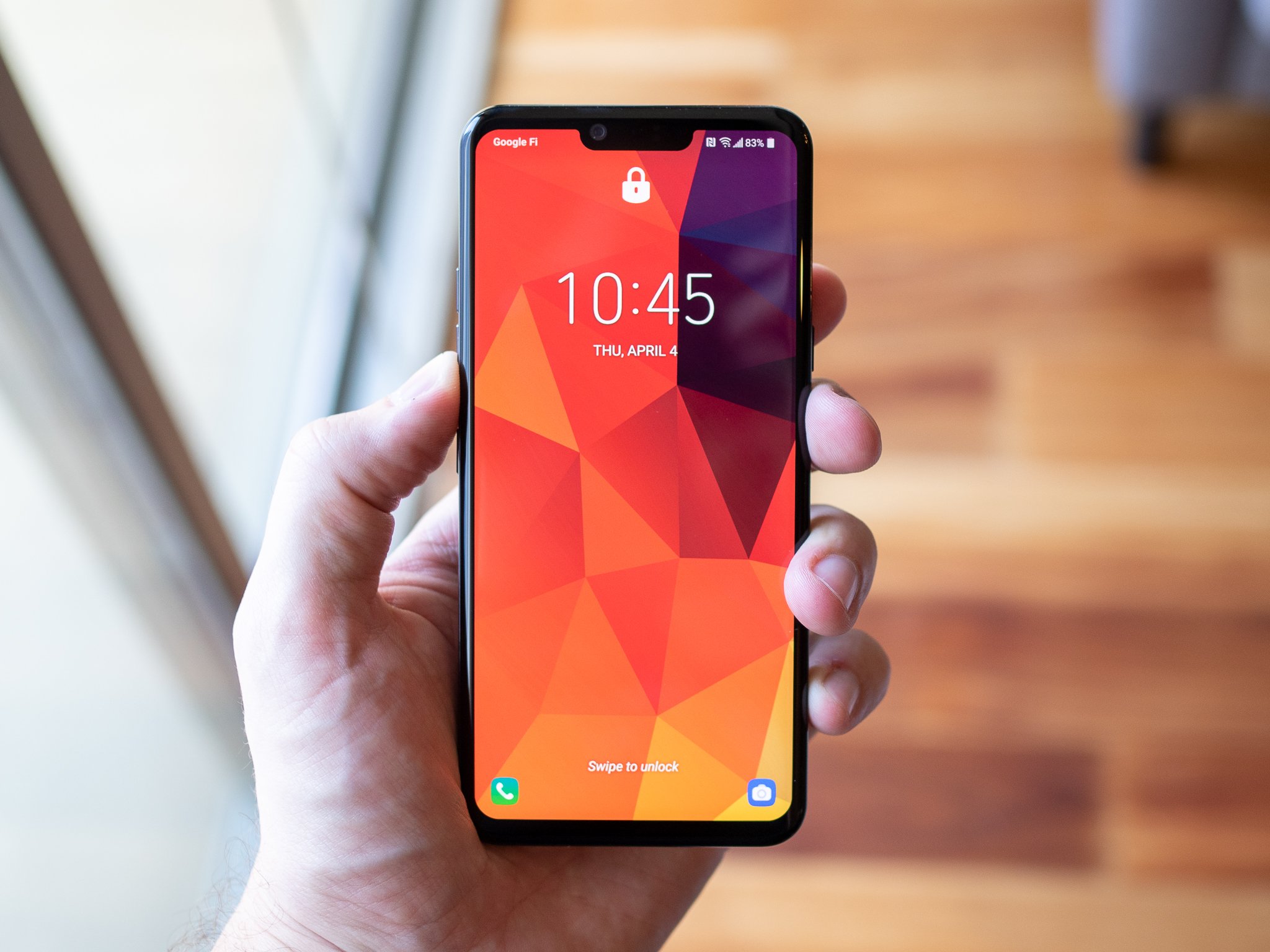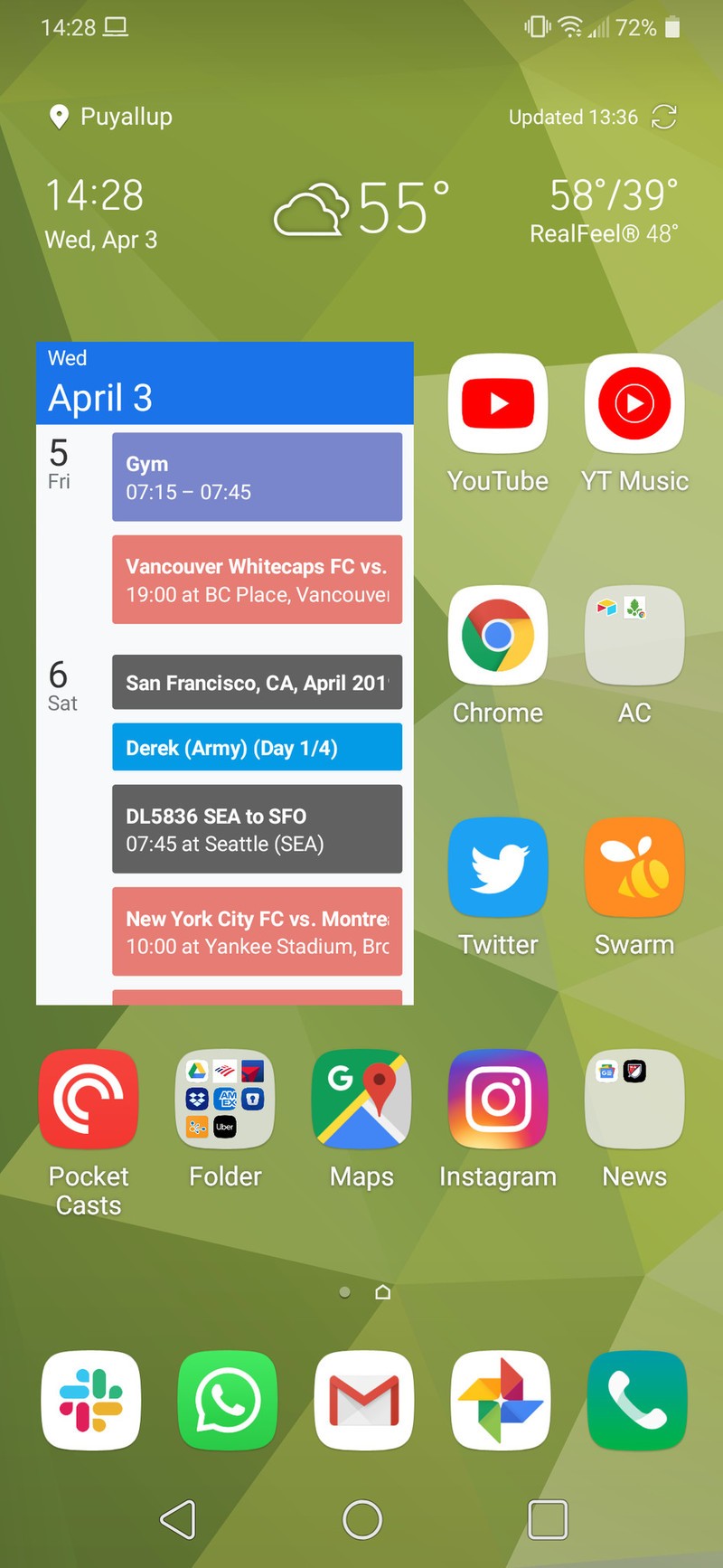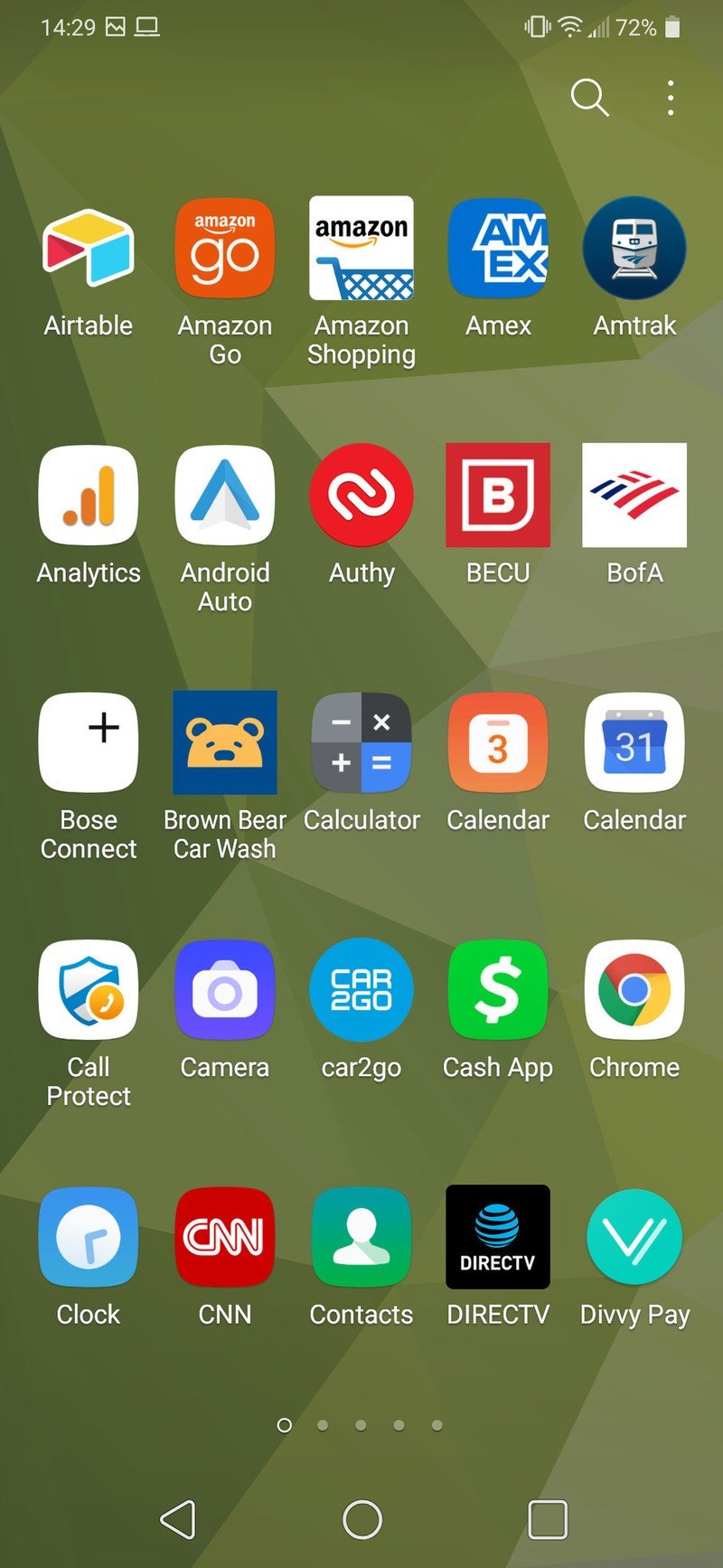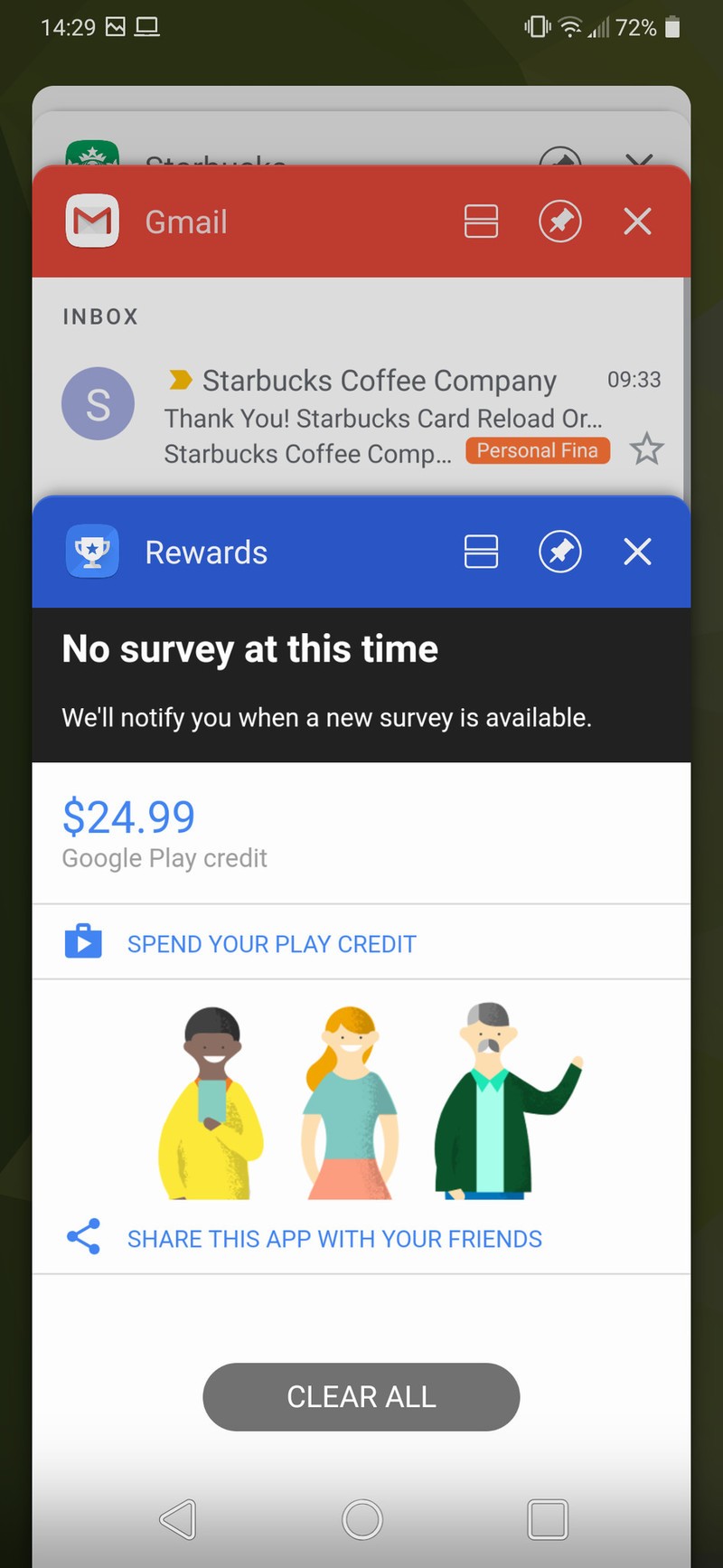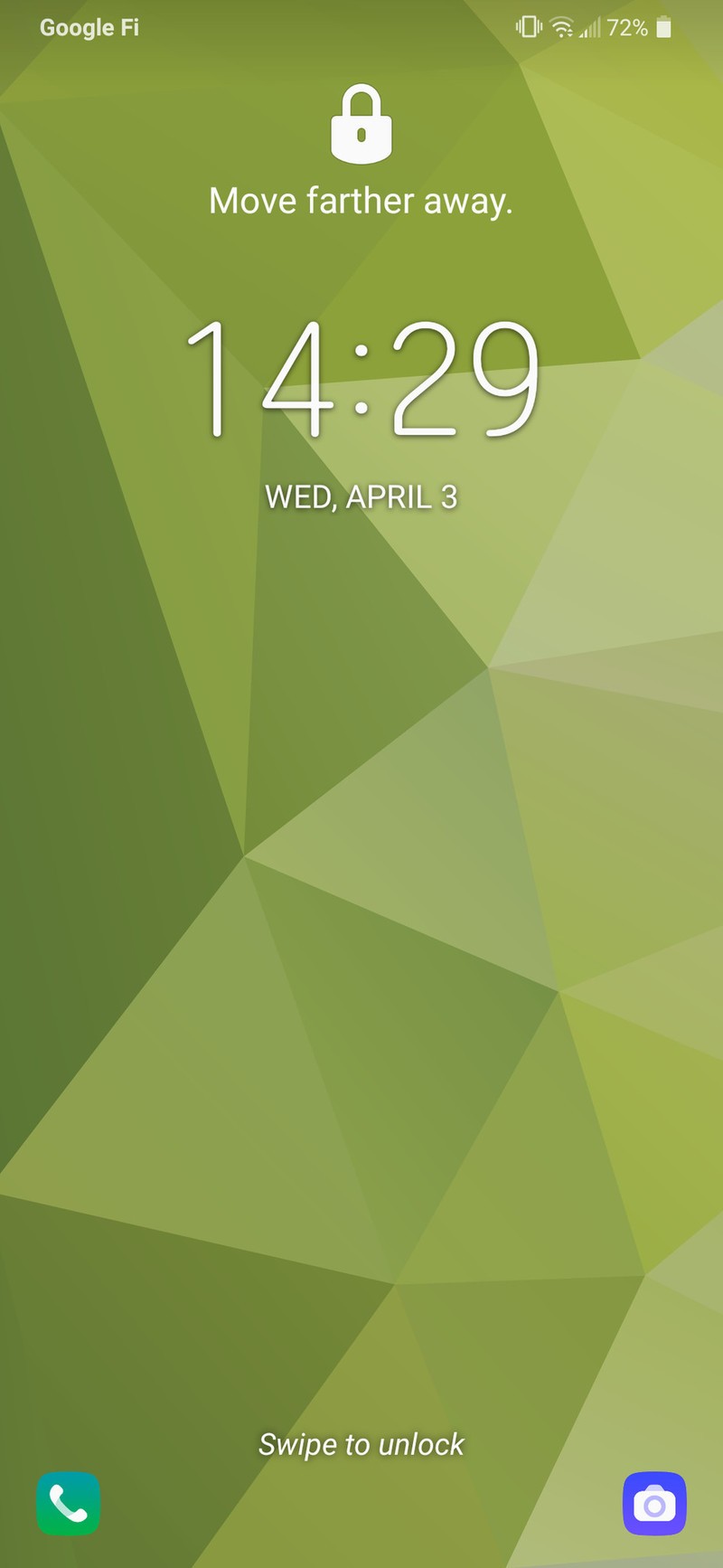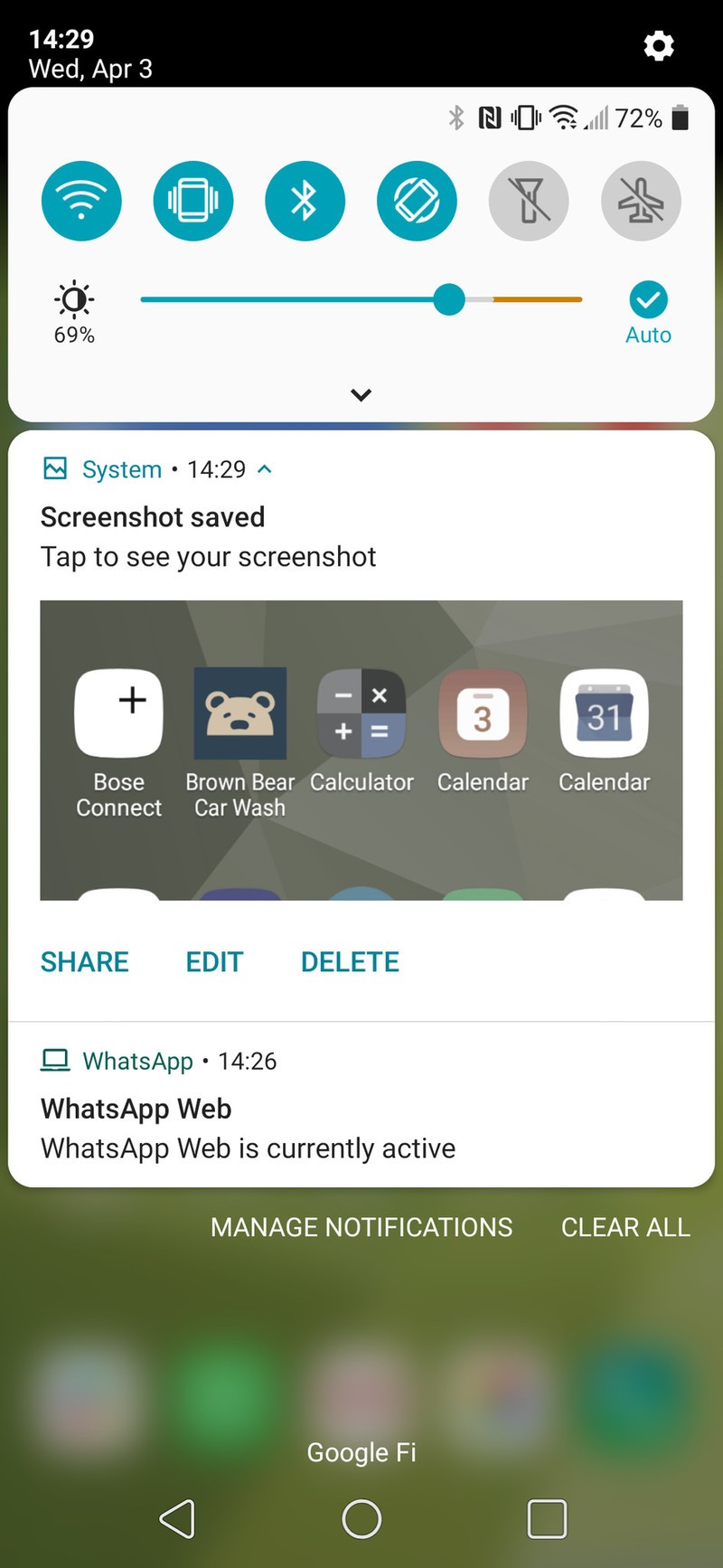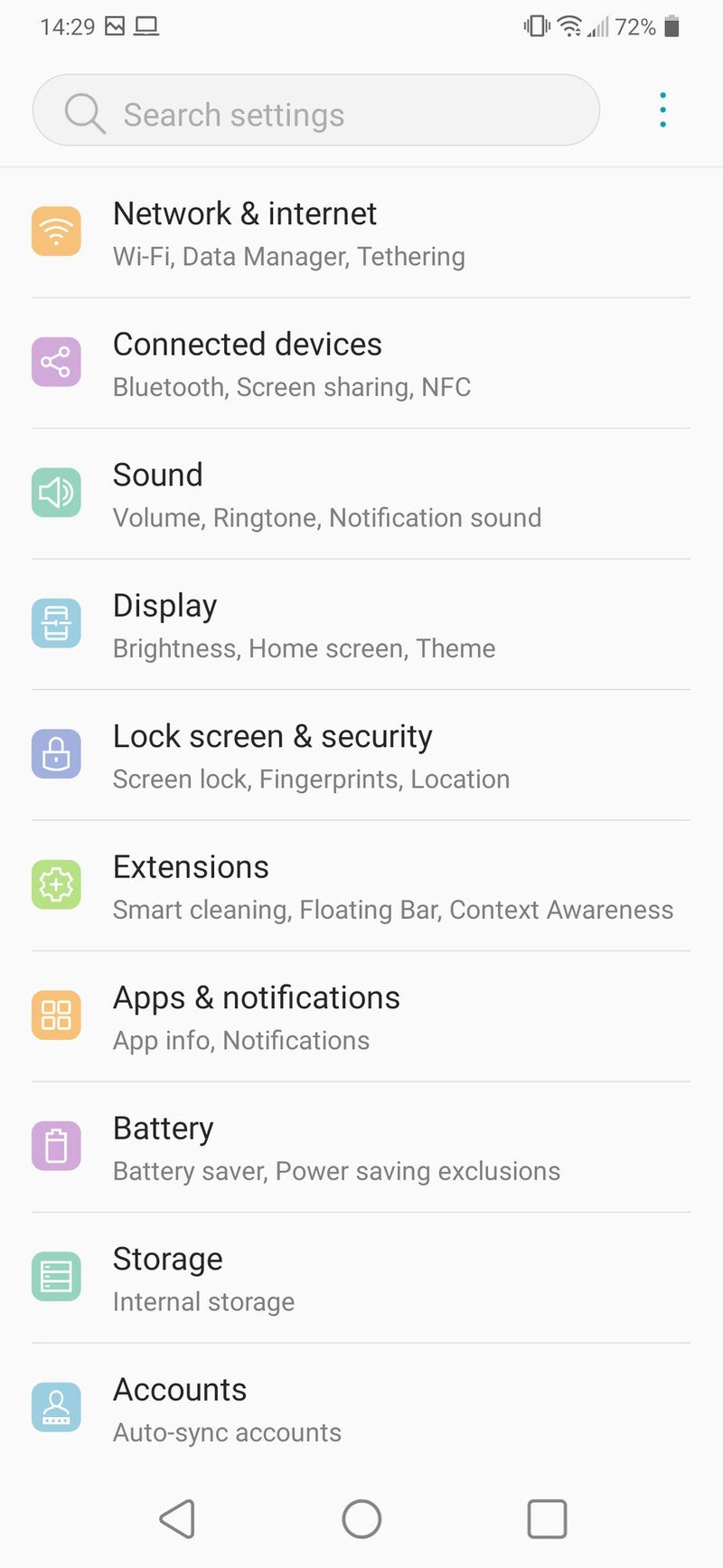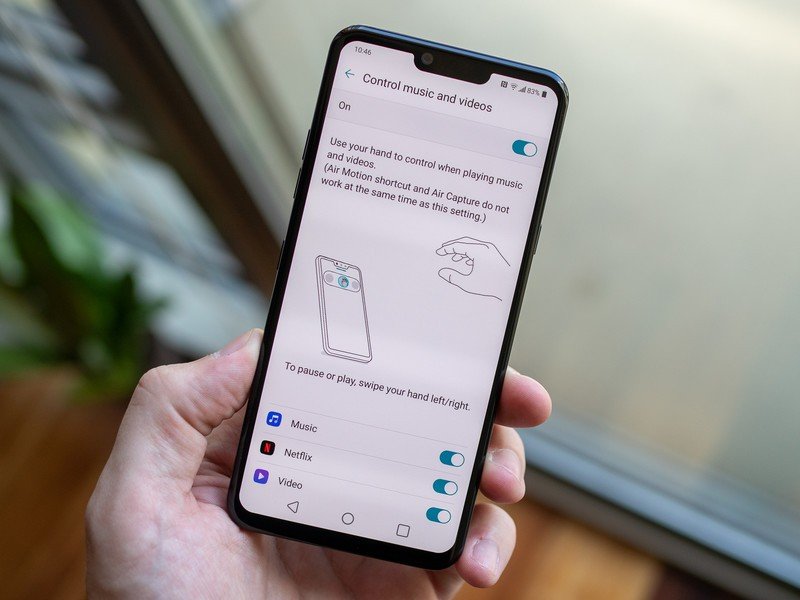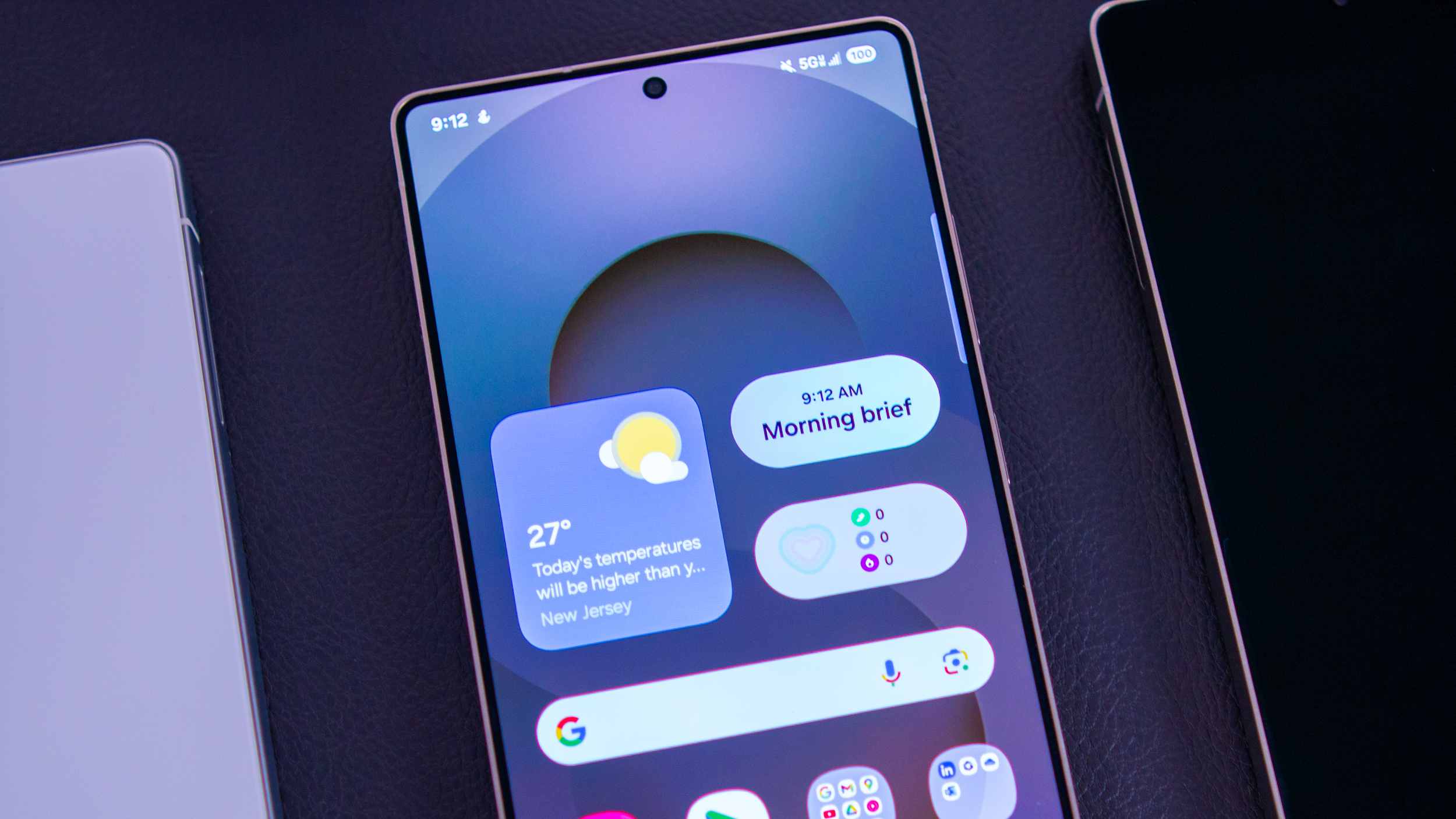LG's modus operandi since 2016 has been to steadily iterate on its flagship phone platforms. Its seemingly low level of commitment to pushing the envelope with its top-tier smartphones comports with its earnings: the company's mobile division isn't making money, and what chance it has of doing so lies in releasing low- and mid-tier devices through deep carrier partnerships rather than $800+ flagships to try and compete with the likes of Samsung and Apple.
The G6, V30, G7 and V40 were all fine phones, but they didn't do much to draw attention from the other mainstream competition that was beating them on features, execution, price, or some combination of the three. The LG G8, in being closely related to the G7 and V40, hasn't changed the formula much, and on the face of it is destined to the same fate as those two predecessors.
But the competition has progressed slowly as well, and as prices have gone up across the board LG is actually price-competitive out of the gate this year. All while adding a few notable improvements including a larger battery and new speaker system. Is it enough for LG to make any sort of dent in the flagship smartphone market? We explore that idea right here.
The Good
- Solid, attractive hardware
- Excellent call quality
- Above-average display
- Headphone jack and SD card slot
- Average battery life
The Bad
- Software feels dated, cumbersome and unpolished
- Cameras don't compete at this price
- Air Motion is a solution in search of a problem
- LG's software update history is highly questionable
Lots of good here
LG G8 What I love
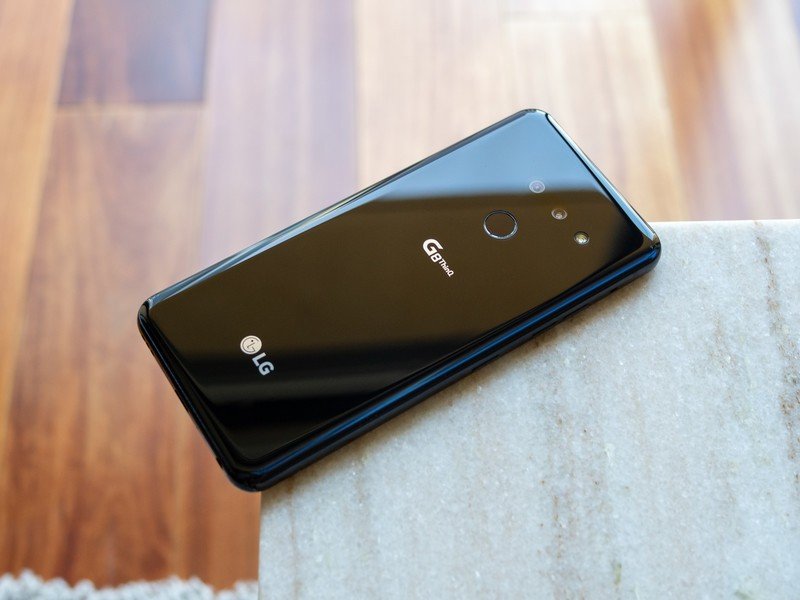
LG's hardware game is strong, and even though things haven't substantially changed since the G7 that slow rate of improvement is pretty much par for the course for the smartphone world as of late. Much like Samsung has done with its last three generations, LG is taking a slow and steady approach, and the resulting G8 is a nicely formed combination of metal and glass.
Get the latest news from Android Central, your trusted companion in the world of Android
LG's hardware game is strong with the G8; there's a lot to enjoy here.
This black model I've been using looks particularly featureless and monolithic, but this design is well executed in any color. The symmetrically and uniformly curved glass on both sides transitions perfectly into the painted metal frame, and LG's ability to place dual cameras underneath the glass back without a separate camera pod protrusion is worthy of applause. The only cutouts are for the LED flash and rear-mounted fingerprint sensor — the latter being a welcome reminder that it's still okay to do an "old school" capacitive sensor in a world where in-display sensors are a mixed bag. (LG also managed to finally include a fingerprint sensor gesture to drop the notification shade. What a world!)
The one place LG quickly bucked a trend was in the heft and substantial feel of the G8, which is much improved over last year's V40 that felt a bit hollow and too light. The G8 strikes a great balance between weight, thickness and usability; it feels as though it's built to stand up to years of use and abuse, but isn't heavy or bulky. It projects the quality you'd expect when spending $850 on a phone.
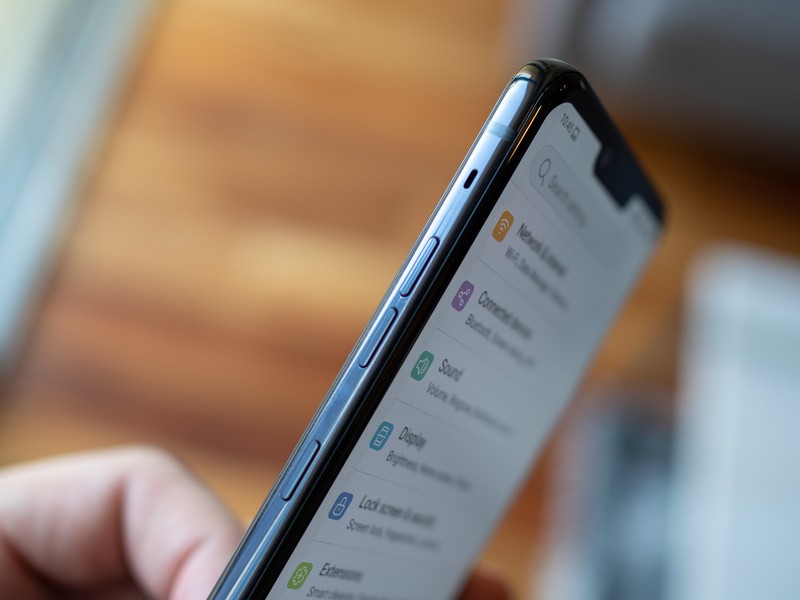
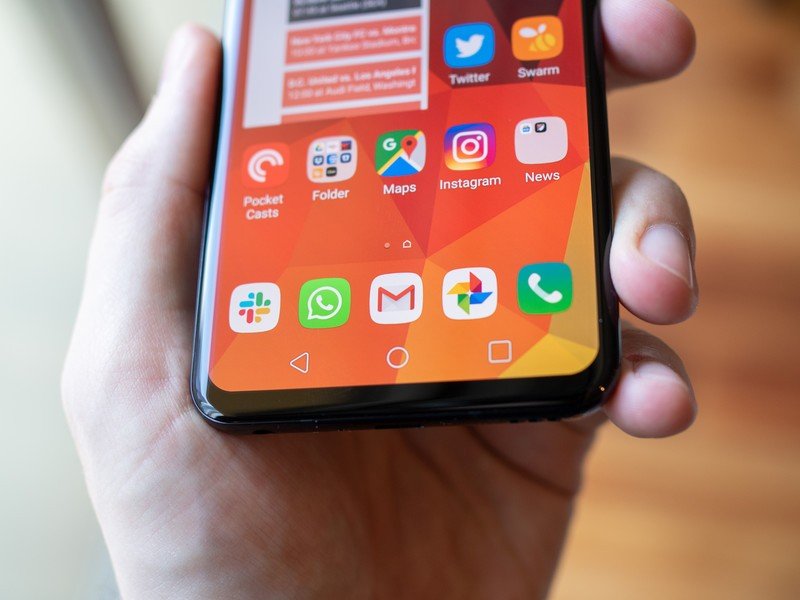
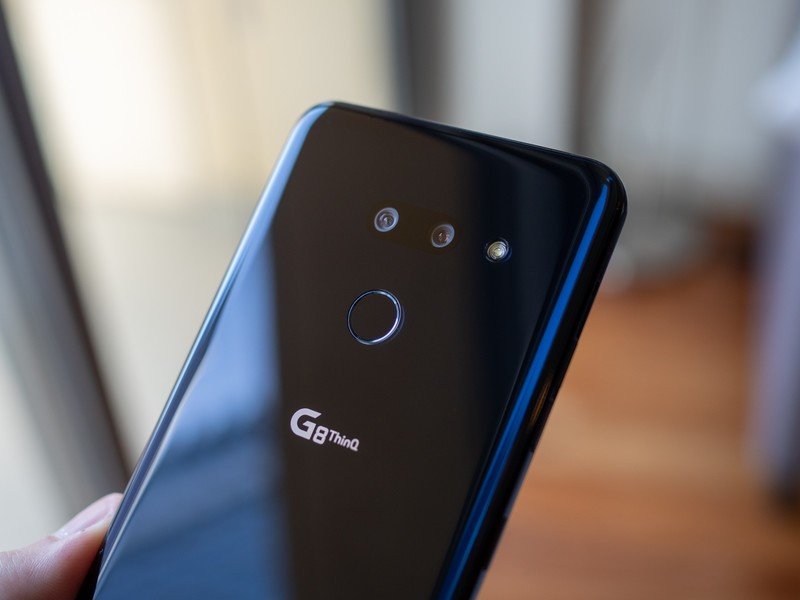
Specs, features performance and battery life are all positive marks for LG's latest flagship.
The G8 is a really good size, with a 6.1-inch display that feels roomy but slots underneath the latest "big" phones. It's slightly larger overall than the Galaxy S10, which is clearly its main competitor, but you wouldn't notice the millimeters between the two. The display itself doesn't match Samsung's latest in colors or brightness — and in reality, no company's screens do — but is above average and has given me nary a problem outside of just not getting as bright as I've been used to with the Galaxy S10 series.
Everything inside matches the level of the exterior. The G8's spec sheet is your typical laundry list of high-end components, but it's punctuated by nice-to-have features like a headphone jack (with high-quality DAC), SD card slot, Quick Charge 3.0, wireless charging and IP68 water resistance. LG has nailed the software stability and performance, too — everything is just as fast, smooth and consistent as any recent phone. Though of course I can only evaluate those metrics after roughly a week with the G8; only time will tell whether the software holds up better than LG's reputation would lead you to expect. There's a long list of examples of LG flagships deteriorating rather quickly over time, and software updates to address issues are few and far between.
LG's new display speaker technology has a clear upside over individual speakers.
LG's new speaker technology that uses the entire display as a vibrating diaphragm to project sound is a neat bit of innovation that actually has a clear upside. Call quality is crystal clear, plenty loud, and doesn't require any specific ear placement — though it does end up projecting sound quite widely, which you want to keep in mind if you're trying to keep things (relatively) private when taking a call near people. As a full-display speaker for listening to music, podcasts or videos, it's a bit more of a mixed bag. LG's "Boombox" tech makes the display speaker and down-firing resonator pair up to be extremely loud and clear when placed on a hard surface like a table, and having the sound just kind of come at you from everywhere rather than a defined speaker area is an improvement. But when holding the phone, that extra level of full-phone vibration just feels weird and generally compromises the sound quality overall (mostly just cutting out mids) to the point where it's worse than "traditional" stereo speakers.
The G8's 3500mAh battery (which is a tad larger than the Galaxy S10's) provides expectedly solid longevity. It's not a serious battery champion like the Galaxy S10+ or OnePlus 6T, but I'd categorize it right alongside the Galaxy S10 and a step up from the Pixel 3 XL. I ended most days with a good amount of battery left to spare, even on heavier days with lots of phone calls and music streaming over Bluetooth that keep the phone's radios active for hours on end. On heavy days like when I travel or had to do lots of Google Maps navigation while driving, I found a charger for a quick top-up in the evening. Most people will be happy with the battery life considering the size of the G8; if it were any larger of a device, you'd expect Galaxy S10+ levels of endurance.
Struggles
LG G8 What I don't like
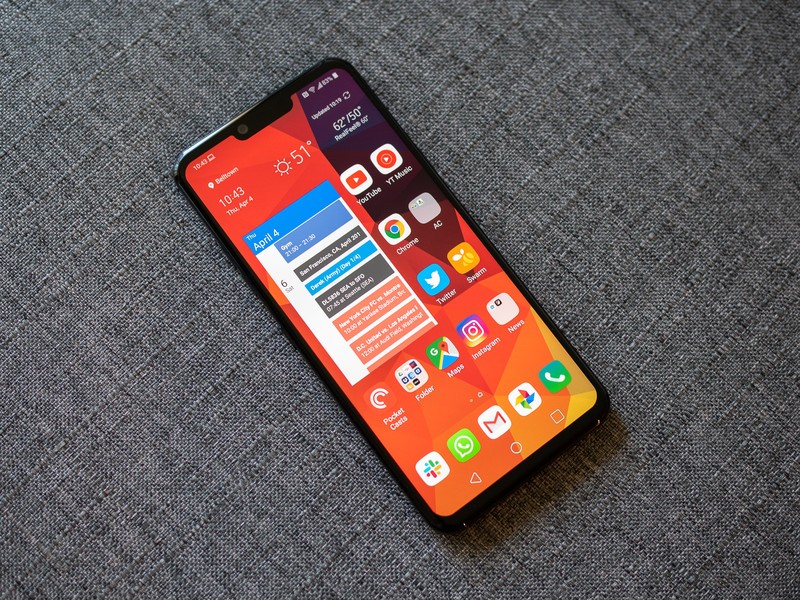
For as much understanding as I give LG's steady approach to hardware improvements, I will condemn it for doing the same with its software. LG's software has consistently been a couple years behind in all aspects, but it's particularly painful to experience in 2019. Companies like Samsung finally figured out how to strike an attractive and useful balance between design and features, which is ostensibly what LG is trying to do but critically failing at. Its features feel haphazard and in many cases like afterthoughts, but you don't have any sort of draw in the other direction such as a nicely-designed interface.
LG hasn't critically evaluated its software in years, and it really shows.
The lock screen, launcher, settings pages, notification shade and default apps — aka, most of the software — have no cohesiveness, nor do they look good or work particularly well on their own. Nothing is broken, and as noted above performance is very good, but we hold modern smartphones to a much higher standard nowadays.
If you need a reminder of how long it's been since LG critically evaluated its own software, look no further than the notification you receive on first booting up your G8 that tells you to "not remove the battery" while the phone is running, which was last actually applicable in the LG G5 released in 2016. It's very clear across the entire software experience that this product is in maintenance mode and not being actively improved.
It's a time machine back to 2016's software, and unfortunately for LG it's not even good 2016 software.
It's a common no-thought solution whenever a smartphone maker continually fails to produce a good software experience that they'd be better off using Android One, but I really do feel that's the way forward here unless LG is willing to pull a 2017-level Samsung move and pull a 180 on design and properly invest in its user experience. Very little is salvageable at this point; you need to burn it all down and start over, or admit you can't do it on your own and switch paths entirely to go with Android One.
As LG is wont to do, much focus was put on its new Air Motion feature considering it was one of the only really new things to lean on when coming from the G7. While it has promise, unfortunately, it's effectively a flop. It's billed as a way to use hand gestures to control various aspects of the phone without touching the screen, leaning on a new ToF (Time of Flight) sensor and IR light next to the front-facing camera to accurately recognize and track your hand from 6-12 inches away. You can set it up to launch apps, capture screenshots, control media playback and address alarms, timers and calls. All interesting use cases, in theory, but the quality of execution is the real weak point. Despite lots of training and experimentation, I just can't get the G8 to recognize my hand gestures very often or very quickly — and as soon as it takes more than a moment to recognize my hand, I'm better off just touching the screen; after all, it's right there.
Air Motion has potential, but it's too slow and inconsistent to consider using today.
If the recognition was far closer to 100% and didn't take so long, I could see a few good reasons to use it from time to time, but still don't see this being any sort of replacement for just good software interface design and a touch screen. The good thing is that you can just turn Air Motion off entirely, so it won't ever get in your way if you don't want to use it. And the display notch created by the extra sensors isn't particularly intrusive. But it's frustrating to see time and development resources were put into this feature, only to be released when it clearly doesn't work very well or have great appeal even if it was flawlessly executed, all while the rest of the core software experience could use some work.
There's a silver lining to the inclusion of the dedicated ToF sensor and IR light on the front of the phone, though, and that's a more secure face unlock system that actually uses a 3D model of your face rather than a typical 2D "picture" like just about every other Android phone. It's been fast enough, and works from a wide variety of angles in challenging lighting conditions. Unfortunately the face unlock, although secure, can't be used to authenticate your access to apps or purchases, but that issue is on Google's end rather than LG's. There's also a "Hand ID" authentication option that reads unique features of your hand to unlock the phone, but like Air Motion itself, it's a second-rate option to the viable alternatives.
Cameras
LG's main draw in photography a few years back was standardizing on offering an ultra-wide-angle camera, which I (and many others) absolutely loved using for the unique perspective it provided — despite the fact that it always lacked in out-and-out photo quality. In many ways it was a crutch that kept LG from being criticized quite as much for its overall lower image quality when compared to Google, Samsung and Huawei. In the last few years LG has really waffled about with its camera strategy, and in the end hasn't really made many improvements.
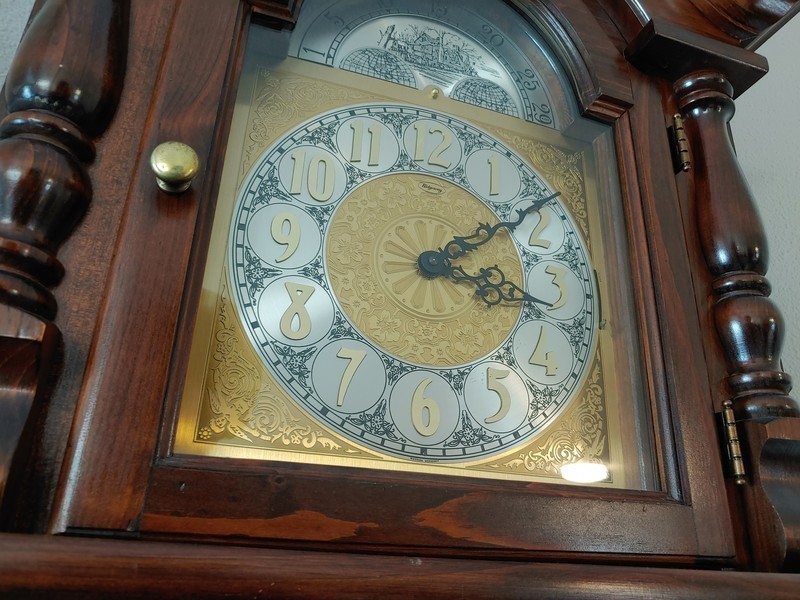
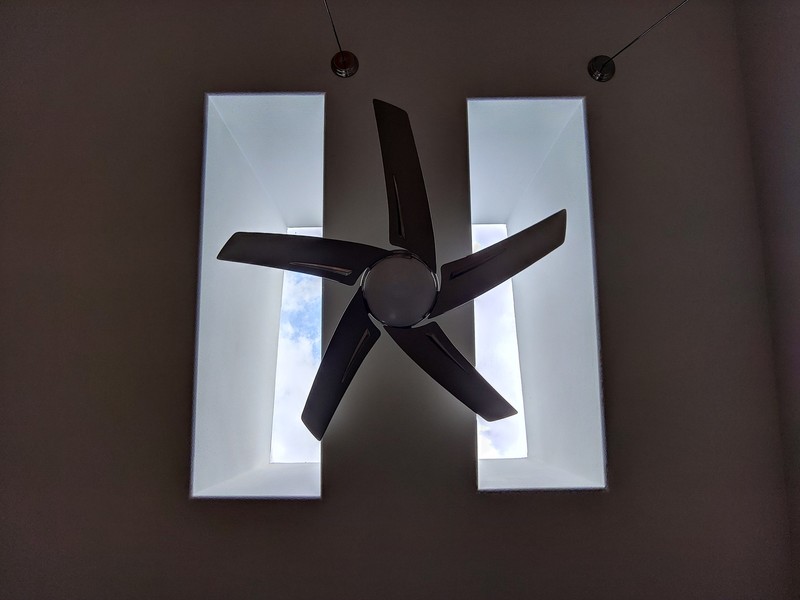

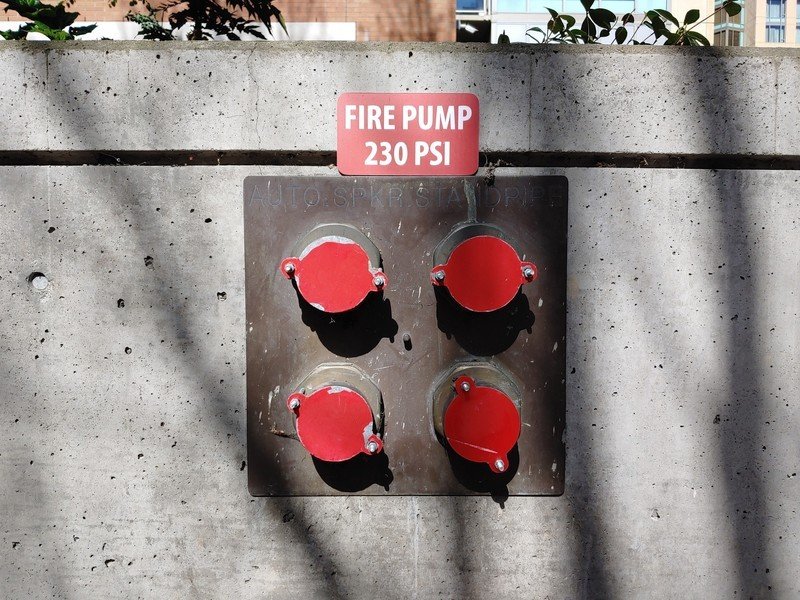









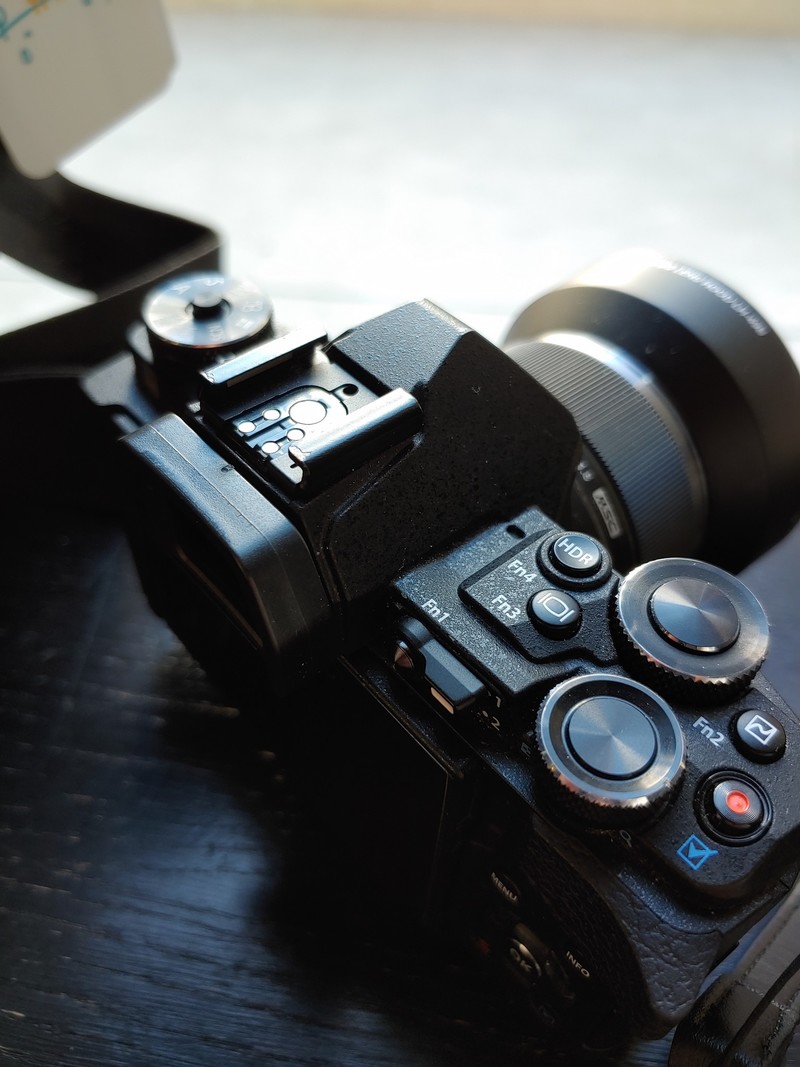

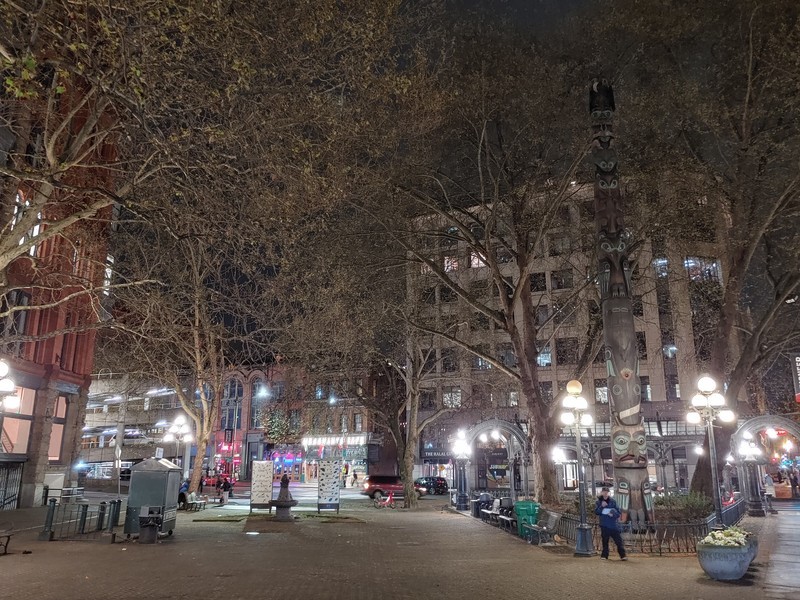
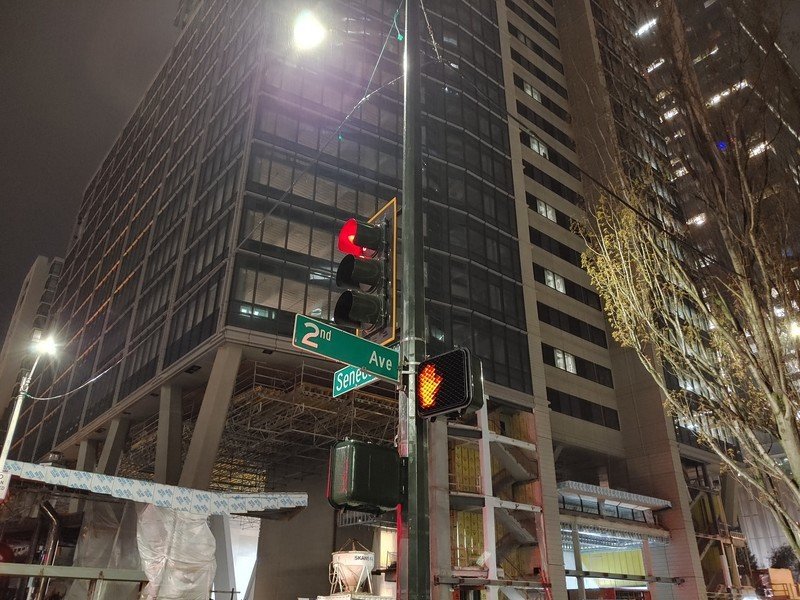

A distinct lack of strong colors and crisp details is noticeable.
On paper, the 12MP main sensor with 1.4µm pixels, an ƒ/1.5 lens and OIS has what it needs to produce solid photos. But LG's processing just doesn't make the most of the materials. Photos are generally good, but they're once again missing that little extra feeling that they're exceptional at any time. When HDR doesn't trigger, the photos lack the colors and contrast I'd prefer to see. Like Samsung is often accused of, the G8 also mashes down details in textures that give a more smoothed out or blotchy look to parts of scenes you'd expect more definition.
Low light shots are where LG is a bit further behind the curve, and it's once again about the processing as the hardware is clearly good enough to let in enough light to produce better photos than this. For the most part, low-light shots are relatively low in grain and pretty sharp overall — but they completely lose any sort of color and are generally bland. Now and then I got a really crisp shot (check out that candlelit cocktail above) when the camera didn't try to brighten the image up, but those instances were bookended by photos that were so bad I didn't even want to save them, let alone share them.
The camera is fine, but is lacking any exceptional qualities that take it to a high level.
Looking purely at the main camera's quality, this is something more akin to a less expensive phone like the OnePlus 6T than the high-end phones it actually competes with on price. The shots are totally fine for Instagram, and you really need to start leaning toward nitpicking to find real problems with the photos, but like other parts of the G8's experience you just expect a bit more at this price point.
The main camera struggles are a bit tougher to swallow when the ultra-wide camera is not particularly good either — and again, is identical to the G7 and V40. The 16MP sensor has just 1.0µm pixels, and the 107° lens doesn't have the same dramatic view as the Galaxy S10 (or LG V30 at that). Photos are fine enough in good lighting, but are a complete disaster in dim scenes. And curiously, the fixed-focus lens has a minimum focal distance of about 2 feet, which ends up being extremely limiting when you want to get a close-up dramatic wide shot of something. Samsung, which admittedly also has a lower-quality sensor behind its ultra-wide lens, is beating LG at its own game with the Galaxy S10.
Tough sell once again
LG G8 Should you buy it?
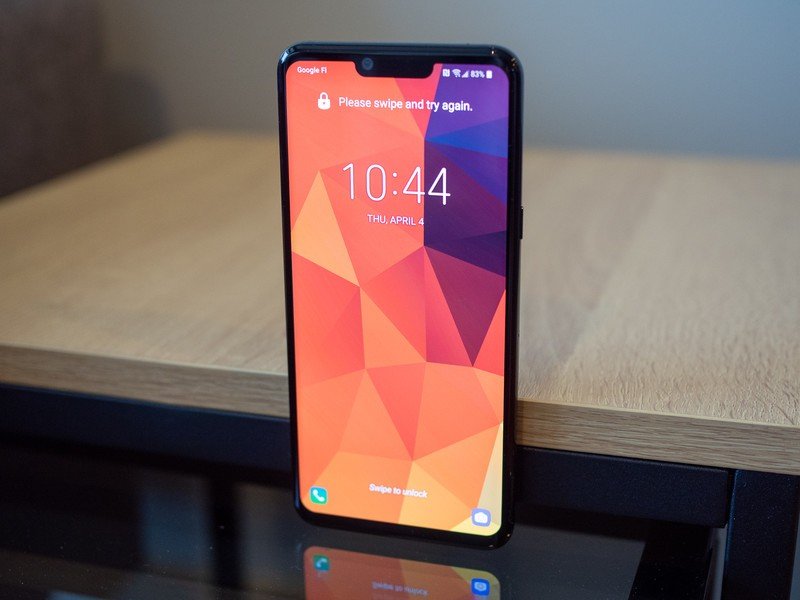
To say that LG's flagship phone strategy feels "rudderless" would be a disservice to captains everywhere. Even without a rudder, a talented mariner can be resourceful with the tools available and still give the vessel some sort of direction. And at the very least, the lack of a steering mechanism doesn't mean that it's going to immediately take on water and sink.
It's not a lack of direction, but drive and momentum, that keeps the G8 from getting to the next level.
And yet, LG's lack of direction and drive to regularly improve and compete with the fantastic slate of smartphones available today seem to be dooming it to the depths. The G and V series aren't necessarily lacking direction, but instead seem to be missing momentum and power — phone after phone comes out with the same little mistakes, same shortcomings and same "almost there" that only cuts it in ship-to-ship cannon fodder. They're not bad phones, they're just missing the little bit of polish and extra effort to be great — and you need to be great to compete today.
For the first time in a while, LG hasn't shot itself in the foot with pricing. At $850, the G8 sits right below the $900 Galaxy S10, and given LG's propensity to slash prices short after release it could be a very interesting buy at $750 or less as the weeks tack on. But then the G8 is still going to be compared with the Galaxy S10e, and will still be more expensive than the forthcoming OnePlus 7. Once again LG has a really solid phone that's completely marginalized by the latest Samsung competitor doing everything a little better for effectively the same money.
3.5 out of 5
The LG G8 is a fine phone. It mostly competes with Samsung's Android-leading Galaxy S10, and in a few small areas — like its audio technology — it even bests it. But software that has been lost in the sands of time, camera quality that hasn't kept up over the past few years, and a bunch of random features that are neither useful nor interesting all dull what would otherwise be a very sharp phone. It will be a great buy at a discount for someone who wants to try something new, but it's going to be a tough sell head-to-head with a Galaxy S10 on the shelf.
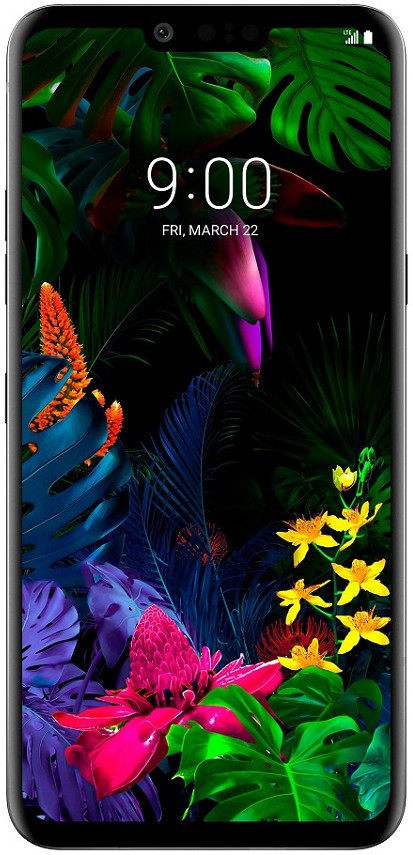
LG G8
The G8 is a fine phone, but one that also struggles to stand out. It has hardware, specs and nice-to-have features that are all well-executed and enjoyable to use, plus a few neat additions like the speaker system and 3D-based face unlock. But LG's consistent missteps in software design, camera quality that doesn't stand up to the competition, and focus on new features like Air Motion that are purely distractions all get in the way of a core phone experience that is otherwise solid and worth considering.

Andrew was an Executive Editor, U.S. at Android Central between 2012 and 2020.
